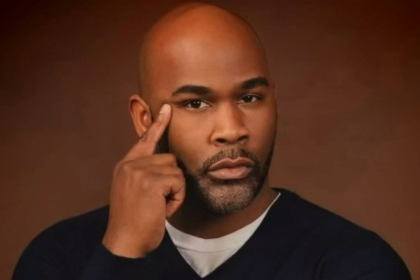Crafting lyrics in the world of rap is more than mere wordplay; it’s an art form that mirrors reality, challenges perspectives and encapsulates personal narratives. Rappers, revered as cultural icons and societal influencers, wield a unique power: the ability to shape opinions and ignite discussions. Yet, amid the creative freedom, a pivotal aspect demands introspection: the mention of consumers within their verses.
In the realm of rap, lyrics serve as a canvas, painting vivid portrayals of life experiences, societal issues and personal triumphs. However, in the cadence and rhymes lies a choice with far-reaching implications. The seemingly casual inclusion of consumer references merits a moment of contemplation. Beyond the rhythm and flow, there exists a compelling rationale behind urging rappers to pause and deliberate before weaving consumer-centric elements into their lyrical tapestries.
While on the surface, mentioning consumers might seem inconsequential, there’s a depth to this choice that deserves scrutiny. This article will delve into the nuances and multifaceted reasons why rappers should consider the repercussions before seamlessly integrating consumer references into their lyrical narratives.
At the outset, addressing consumers in rap lyrics can be a double-edged sword. On one hand, it might create a relatable connection with the audience, tapping into common experiences and emotions. Mentioning brands, products or consumer behaviors can resonate with listeners, establishing a sense of familiarity and cultural relevance. However, this seemingly harmless inclusion can have unforeseen consequences.
Primarily, referencing consumers in lyrics can inadvertently promote materialism and reinforce societal values centered around consumption. The glorification of expensive possessions, luxury brands and extravagant lifestyles can fuel the desire for material goods among audiences, especially impressionable younger listeners. Rappers often serve as influential figures, and their words carry weight, shaping perceptions and aspirations.
Moreover, associating specific brands or products with success can inadvertently endorse consumerism. While artistic expression should be free, it’s essential to tread carefully, recognizing the potential impact on shaping attitudes towards spending habits and materialistic pursuits.
Beyond fostering materialistic desires, mentioning consumers in lyrics might also inadvertently perpetuate stereotypes or portrayals that can be reductive or misleading. Rappers, as storytellers, should be cautious not to generalize or stereotype individuals based on their consumer choices. Such references can reinforce biases or misrepresent diverse communities, inadvertently perpetuating social stigmas.
An added layer of concern arises from potential legal implications. Using brand names or specific products in lyrics can lead to copyright issues or trademark infringement if not handled appropriately. While some brands might embrace the exposure, others could take legal action against unauthorized references, leading to complications for both the artist and their work.
Nonetheless, there are ways for rappers to navigate this terrain thoughtfully. Instead of explicitly mentioning brand names or specific products, artists can convey similar sentiments using metaphorical or abstract language. This approach allows for creative expression while avoiding direct endorsements or potential legal entanglements.
Rappers possess a unique platform that extends far beyond entertainment; they hold the power to influence perceptions, attitudes and societal norms. Therefore, it’s crucial to exercise prudence and responsibility when referencing consumers in lyrics. By steering clear of glorifying materialism, avoiding stereotypes and being mindful of potential legal ramifications, rappers can harness their artistic prowess to inspire positive change without inadvertently perpetuating detrimental influences.
In essence, while the inclusion of consumer references in rap lyrics might seem innocuous at first glance, its implications are far-reaching. Rappers should carefully weigh the consequences and consider alternative ways to convey their messages without inadvertently promoting materialism, perpetuating stereotypes or inviting legal challenges. Ultimately, responsible and conscientious lyrical choices can harness the power of music to uplift, educate and inspire audiences while leaving a positive impact on society.
This story was created using AI technology.











